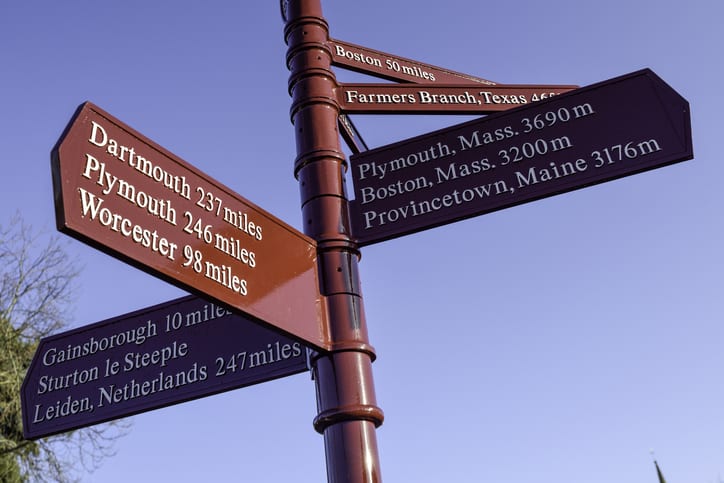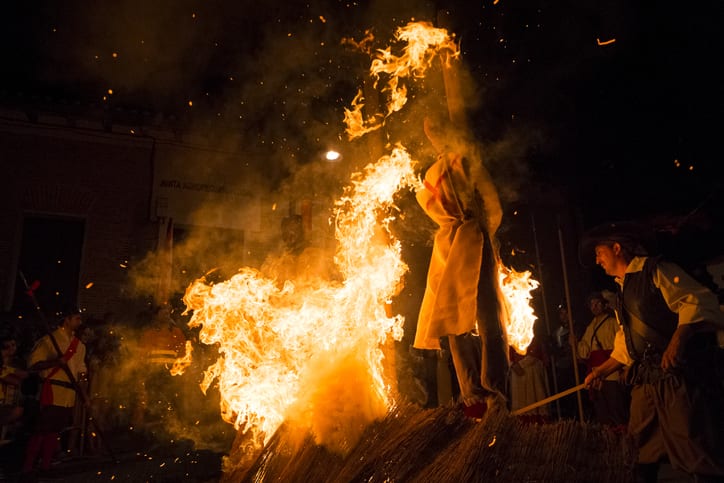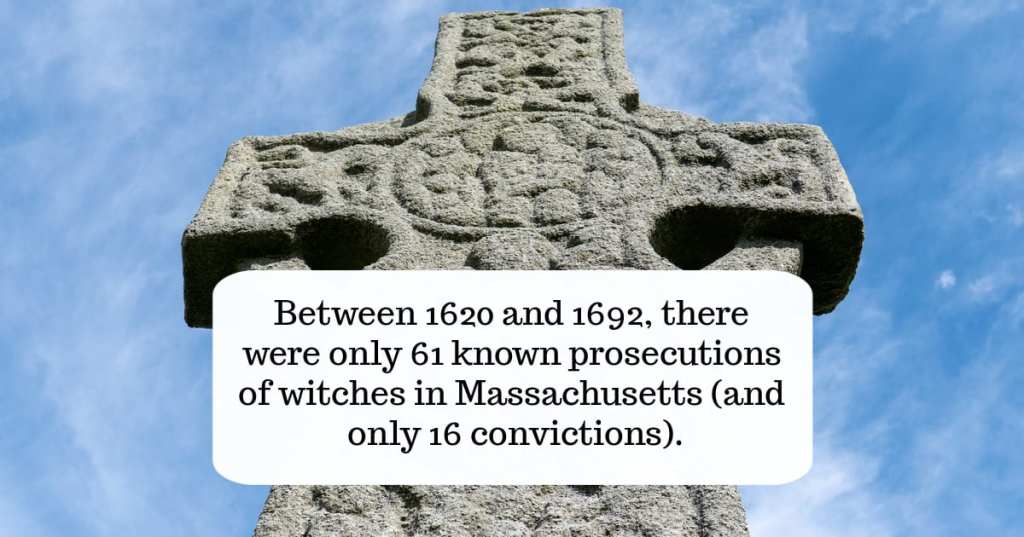Trending Now
Most of us remember a few things about the Puritans from our days spent half-listening in history classes – they had something to do with the founding of America, and they had big ol’ sticks up their butts.
Even those couple of things, though, aren’t totally and honestly true.
It turns out we believe more than a couple of things about our ancestors that aren’t exactly right, and below are 5 that we need to stop repeating asap.
5. They weren’t always party poopers.

Image Credit: iStock
Witty journalist H.L. Mencken said in 1925 that Puritanism could be defined as “the haunting fear that someone, somewhere, may be happy.”
That’s really a bit of a stereotype, because in general, the Puritans weren’t anymore repressed or judgmental than other Christian sects of the day – which is to say, everyone was pretty uptight and repressed back in the day.
They might not even have been as fanatically religious as we believe, because those jeremiads – the six-hour “fire and brimstone” sermons – evolved out of a fear that their flocks were losing faith.
They were a lot like us, I guess – their parents had to force them to church, and everyone was in a hurry for it to be over.
4. They’re not the same as Pilgrims.

Image Credit: iStock
Religiously, the Puritans and Pilgrims are almost identical – both groups wanted to “purify” the Church of England with reforms – but their methods were different. The Pilgrims believed leaving the church was the right thing to do, while the Puritans wanted to change it from within.
The Pilgrims sailed to America to do their own church thing, but the Puritans hoped England would be inspired to change after seeing how well it worked for them.
It was the Pilgrims who arrived on the Mayflower to establish Plymouth, made friends with the Natives, and barely survived their first winter.
The Puritans, rich, middle-class merchants – arrived 10 years later ready to go to war with the Natives, establishing the Massachusetts Bay Colony.
Once both were in America, they kind of blended together, though the Pilgrims continued to treat the Native population much better than the Puritans, who were at war with the Natives within five years of landing on their soil.
3. They didn’t spend all their time burning witches.

Image Credit: iStock
Everyone in the early modern world believed in witches and witchcraft, and if you were Christian, you believed it was bad.
Thousands of people were convicted in England and Europe in the 16th and 17th centuries, and many more were murdered by mobs before they could stand trial.
But while the events in Salem, Massachusetts in the 1690s make the Puritans look overzealous in their witch-hatred, the truth is that event was an outlier – between 1620 and 1692, there were only 61 known prosecutions of witches in Massachusetts (and only 16 convictions).
2. They didn’t exactly bring religious freedom to America.

Image Credit: iStock
The Puritans came to America so they could practice their new, purified version of Christianity – they never intended to let others freely practice as they chose.
Don’t take my word for it, though. Listen to Nathaniel Ward, a Puritan clergyman and colonial leader in the Massachusetts bay Colony.
“I dare take upon me, to be the herald of New England so far, as to proclaim to the world, in the name of the colony, that all Familists, Antinomians, Anabaptists, and other enthusiasts shall have free liberty to keep away from us, and such as will come to be gone as fast as they can, the sooner the better.”
Dissenters, within and outside the Puritan ranks, were tried for heresy and banished.
Fun fact: They really hated the Quakers, though, and people were put to death for simply giving a Quaker directions on the road.
1. They didn’t hate intimacy (all the time).

Image Credit: iStock
We think that people’s beliefs that sex is dirty and sinful come from the Puritans, but in truth, as long as the act in question took place in a marriage bed.
They thought intimacy was fine and good, even if the couple in question wasn’t looking to have a baby, and believed it strengthened bonds between a spouses – at least one man was excommunicated for withholding the pleasurable experience from his wife.
I’m feeling smarter already, how about y’all?
Tell me in the comments which one of these gobsmacked you!






